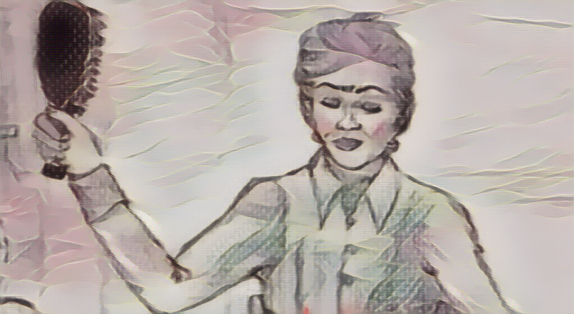In the mid-1960s, I spent my summers working on my aunt’s farm. My uncle had passed away a couple of years before, and she continued to run the farm with a combination of hired hands and relatives’ children, like myself.
The farm was a sprawling expanse of land, with fields stretching as far as the eye could see. The main farmhouse was a huge, old structure, weathered by time but still standing strong. Surrounding it were several barns and outbuildings, each serving a specific purpose.
The fields were a patchwork of different crops. Corn, wheat, and soybeans were the main staples, but there were also smaller plots dedicated to vegetables like tomatoes, cucumbers, and peppers. Rows of fruit trees lined the edges of the fields, offering apples, pears, and cherries in their respective seasons.
The farm was also home to a variety of animals. Cows grazed in the pastures, providing milk and beef. Chickens roamed freely, their clucking a constant background noise, and their eggs a daily staple. Pigs wallowed in their pens, and a couple of horses were kept for both work and the occasional ride.
It was a huge old farmhouse, and typically there would be about eight or nine kids, equally divided between boys and girls, spending the summer with her.
One thing was certain – she ran a very tight ship. While we had fun there, we also knew that if we strayed from the straight and narrow, we would face the consequences, no matter how young or old we were.
My aunt, a true farmyard woman, was only in her early 40s but had been aged by hard work. She was a stern woman with a no-nonsense attitude, always dressed in plain, practical clothing suitable for farm work. Her weathered face, calloused hands, and stern eyes could make any child think twice before misbehaving. Her hairstyle was simple and practical, often tied back in a bun or ponytail.
She was a devout Christian and attended church every Sunday without fail. She believed children should be seen and not heard, and that they should contribute to the farm chores. Punishments were always given in the same way. The offenders were told their fate, and after dinner, they would assemble and stand against a pantry wall, waiting for their session with my aunt.
When she was ready, my aunt would come into the kitchen and remind us all of our transgressions.
In random order (if there was more than one child to receive punishment), my aunt would call us over to where she was sitting, on an old, heavy wooden kitchen chair.
She would place us over her knee. If there was more than one child being punished, they would witness the others being disciplined as an added deterrent.
The implement of her choice was a big wooden spoon almost the size of her hand, though sometimes she used a switch if the occasion warranted it. The spoon was made of solid oak, with a smooth, polished surface that gleamed in the kitchen light. It had a long handle, about 12 inches, and a broad, flat head, perfect for delivering a stinging smack. The edges were slightly rounded, and there were a few small nicks and scratches from years of use, but it was still a formidable tool in her hands.
The strokes were always aimed at where your bottom met your thighs and administered with maximum force, creating a loud ‘smack’ upon contact with your backside. The sound echoed through the kitchen, a sharp reminder of the consequences of misbehavior.
Tears usually followed the first six or seven swats. The pain was intense, a burning sensation that spread across the skin and seemed to penetrate deep into the muscles. Each subsequent smack only intensified the agony, and the tears flowed freely, mingling with the sobs that escaped despite our best efforts to remain stoic.
Once the spanking was over, the offender was escorted to the wall near the pantry and remained facing it for at least 30 minutes, or until they had stopped sobbing. The time spent standing there was a mix of physical discomfort and emotional turmoil. The sting of the spanking lingered, a constant reminder of the punishment, while the embarrassment of being disciplined in front of others added to the humiliation.
When my aunt was satisfied with her work, we usually went to our rooms with tear-stained faces for the night, and I always slept on my stomach after a smacking. The soreness made it impossible to lie on my back, and the emotional weight of the punishment often kept me awake, replaying the events in my mind and vowing to avoid such a fate in the future.
The punishments my aunt handed out were a huge deterrent, and over an entire summer, I only got one or perhaps two at the most. The combination of a sore bottom and the embarrassment of it all kept us well-behaved, productive, and responsible for our actions. The fear of another session over her knee was enough to keep us in line, and the lessons learned during those summers stayed with me long after I left the farm.
These experiences taught me the importance of discipline and responsibility. The lessons I learned on that farm, though harsh, instilled in me a sense of accountability and respect for rules. They shaped my character and prepared me for the challenges of adulthood. The lasting impact of those childhood lessons is a testament to the value of firm but fair disciplin








